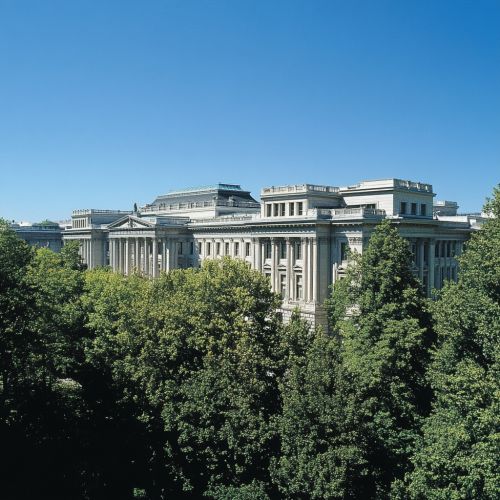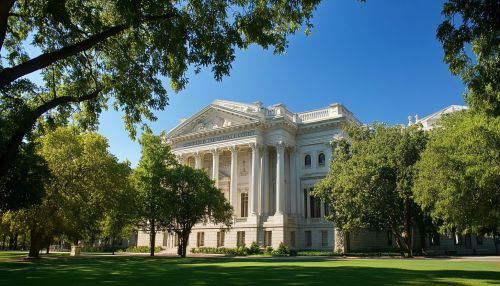Department of Commerce
Introduction
The Department of Commerce is a vital component of government operations in many countries, tasked with promoting economic growth, sustainable development, and international trade. This department typically oversees a wide range of activities related to commerce, industry, and trade, including the regulation of economic policies, the promotion of domestic and international business, and the collection and analysis of economic data. The department plays a crucial role in shaping the economic landscape by facilitating business development, supporting innovation, and ensuring fair trade practices.
Historical Background
The concept of a Department of Commerce emerged in the late 19th and early 20th centuries as industrialization and globalization began to transform economies worldwide. The need for a dedicated governmental body to manage and promote commerce became apparent as nations sought to enhance their economic competitiveness and address the complexities of international trade.
In the United States, the Department of Commerce was established in 1903, initially as the Department of Commerce and Labor. It was later separated into two distinct entities in 1913, reflecting the growing importance of commerce in the national agenda. Similar departments were established in other countries, each tailored to the specific economic and political contexts of their respective nations.
Organizational Structure
The organizational structure of a Department of Commerce can vary significantly between countries, but it generally includes several key components:
Executive Leadership
The department is typically headed by a Secretary or Minister of Commerce, who is responsible for setting strategic priorities and overseeing the implementation of economic policies. This individual is often a member of the national cabinet and works closely with other government officials to coordinate economic initiatives.
Divisions and Bureaus
Departments of Commerce are often divided into specialized divisions or bureaus, each focusing on specific areas of commerce and trade. Common divisions include:
- **International Trade Administration (ITA):** Focuses on promoting exports, ensuring fair trade, and supporting U.S. businesses in the global market.
- **Bureau of Economic Analysis (BEA):** Provides essential economic data and analysis to support policy-making and business decisions.
- **National Oceanic and Atmospheric Administration (NOAA):** Manages environmental and atmospheric research, which can impact commerce, particularly in sectors like fisheries and shipping.
Advisory Committees
Many Departments of Commerce establish advisory committees composed of industry experts, economists, and business leaders. These committees provide valuable insights and recommendations on policy development and implementation.
Functions and Responsibilities
The Department of Commerce is responsible for a wide range of functions that are critical to the economic well-being of a nation. These functions include:
Economic Policy Development
The department plays a key role in formulating economic policies that promote growth, innovation, and competitiveness. This involves analyzing economic trends, identifying challenges and opportunities, and developing strategies to enhance economic performance.
Trade Promotion and Regulation
A primary function of the Department of Commerce is to promote international trade and ensure fair trade practices. This includes negotiating trade agreements, resolving trade disputes, and enforcing trade regulations to protect domestic industries.
Business Support and Development
The department provides various forms of support to businesses, including access to financing, technical assistance, and market research. It also promotes entrepreneurship and innovation through initiatives such as business incubators and technology transfer programs.
Data Collection and Analysis
Accurate and timely economic data is essential for informed decision-making. The Department of Commerce collects and analyzes data on a wide range of economic indicators, including GDP, employment, and trade balances. This information is used by policymakers, businesses, and researchers to understand economic trends and make strategic decisions.


Impact on Economic Development
The Department of Commerce plays a significant role in shaping the economic development of a nation. By promoting trade, supporting businesses, and providing critical economic data, the department helps to create a favorable environment for economic growth and innovation.
Trade and Investment
The department's efforts to promote trade and attract foreign investment are crucial for economic development. By opening new markets and facilitating cross-border transactions, the department helps businesses expand their reach and increase their competitiveness.
Innovation and Technology
Innovation is a key driver of economic growth, and the Department of Commerce supports innovation through various programs and initiatives. This includes funding research and development, supporting technology transfer, and fostering collaboration between industry and academia.
Infrastructure Development
The department also plays a role in infrastructure development, which is essential for economic growth. This includes supporting projects that improve transportation, communication, and energy infrastructure, all of which are critical for facilitating commerce and trade.
Challenges and Criticisms
Despite its important role, the Department of Commerce faces several challenges and criticisms. These include:
Bureaucratic Inefficiencies
Like many large government agencies, the Department of Commerce can be subject to bureaucratic inefficiencies that hinder its ability to respond quickly to changing economic conditions. Streamlining processes and improving coordination between divisions can help address these issues.
Balancing Competing Interests
The department must balance the interests of various stakeholders, including businesses, consumers, and environmental groups. This can be challenging, particularly when interests conflict, such as in cases involving trade-offs between economic growth and environmental protection.
Global Economic Uncertainty
The global economic landscape is constantly changing, and the Department of Commerce must adapt to new challenges, such as trade wars, economic recessions, and technological disruptions. This requires a proactive approach to policy development and implementation.
Future Directions
Looking ahead, the Department of Commerce will continue to play a critical role in shaping the economic future of nations. Key areas of focus may include:
Digital Economy
The rise of the digital economy presents both opportunities and challenges for the Department of Commerce. The department will need to develop policies that support digital innovation while addressing issues such as data privacy and cybersecurity.
Sustainable Development
Sustainable development is becoming increasingly important, and the Department of Commerce will need to integrate environmental considerations into its economic policies. This includes promoting green technologies and supporting industries that contribute to a sustainable future.
Global Collaboration
As the world becomes more interconnected, the Department of Commerce will need to enhance its collaboration with international partners. This includes participating in global trade negotiations, sharing best practices, and addressing transnational economic challenges.
